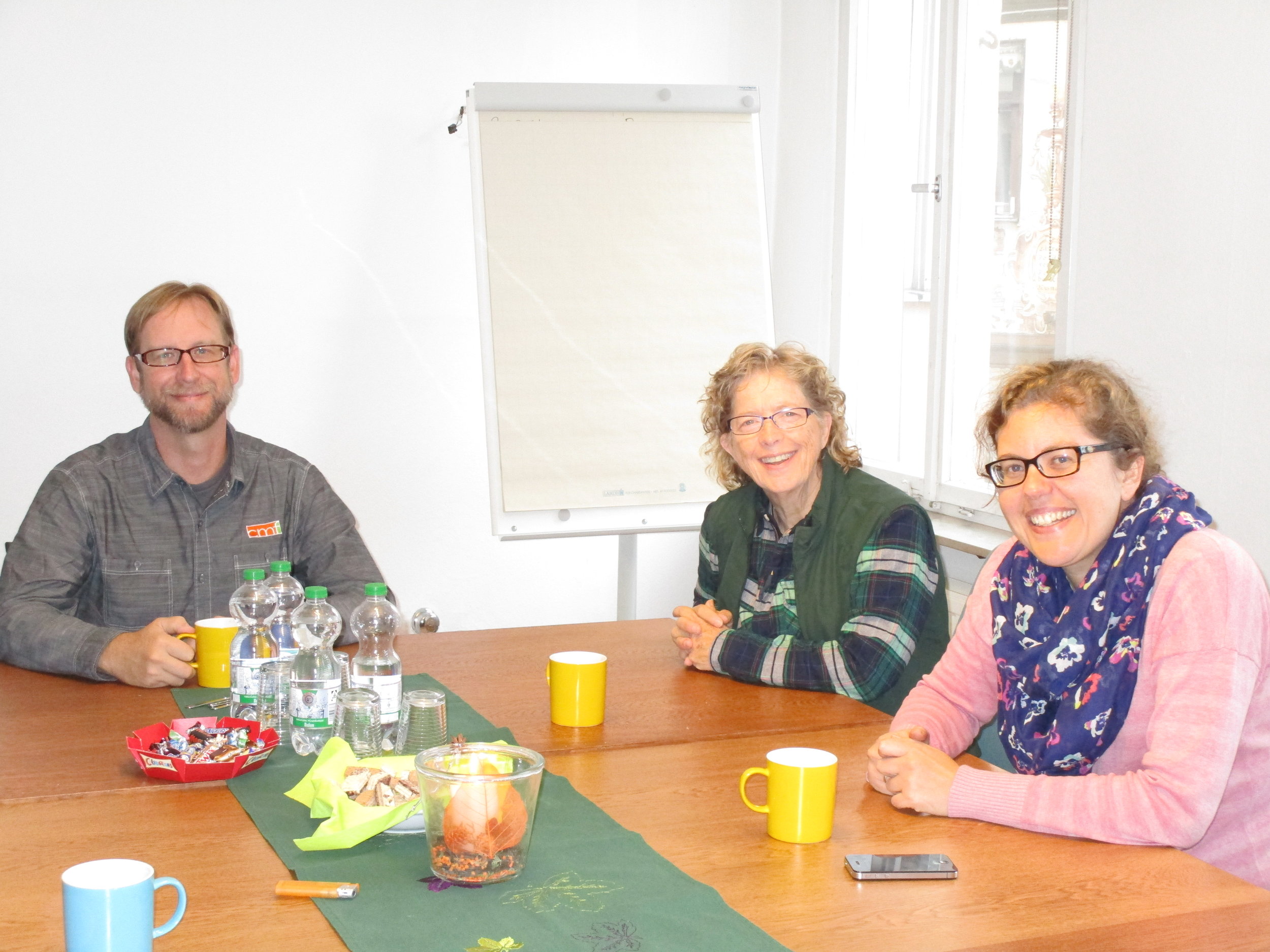Blog
News from Tübingen
Birgit Hallmann
Foto: Friedhelm Albrecht/Universität Tübingen
By Beth Langstaff
During the semester break, we have been busy planning the next International Symposium, which will be held here in Tübingen at the beginning of October 2018. We are excited to announce the topic: "The Lord's Prayer: Origins, Significance, and Reception" / "Das Vaterunser: Ursprünge, Bedeutung und Wirkungsgeschichte." Fourteen scholars from around the world will be discussing the Lord's Prayer, asking and addressing questions such as: How should we read the Lord's Prayer as the centre of the Sermon on the Mount? What is the relationship between prayer and faith in the New Testament? What did early Christians such as Origen teach about the Lord's Prayer? Does God tempt anyone? We'll be introducing the speakers in the following issues of The Word and The World.
The Lord's Prayer is found in two of the four gospels, in Matthew 6:9-13, in the middle of the Sermon on the Mount, and a shorter form with slightly different wording in Luke 11:2-4. Another version is found in the early Christian summary of teaching and church order known as the Didache:
"Our Father in heaven,
hallowed be your name,
your kingdom come,
your will be done on earth as it is in heaven.
Give us today our daily bread,
and forgive us our debt, as we also forgive our debtors;
and do not lead us into temptation,
but deliver us from the evil one; for yours is the power and the glory forever."
(translation by Michael W. Holmes, The Apostolic Fathers, 3rd. ed.)
The Didache urges its readers to pray like this three times a day — not a bad habit!
SBL in Berlin
Birgit Hallmann
NEWS FROM TÜBINGEN: SBL in Berlin
This year, the International Meeting of the Society of Biblical Literature was held at the Humboldt University in Berlin, in the second week of August. I was able to attend and to take part in the Catholic Epistles section of the meeting, which focused on the reception history of the Epistle of James in the Reformation. I was able to read a paper I had written during my research semester last year, on "The Second Battle of James," exploring debates concerning James in the middle of the sixteenth century. These Reformation debates help explain why the Epistle of James has often been dismissed or disregarded in Protestant circles (you have no doubt heard Luther's notorious description of James as a "strawy epistle"/“stråwin Epistel”!); and sixteenth-century exegetes raised questions which still occupy commentators on James: who was James? Was he an apostle--and, if so, why doesn't he identify himself as such? Which audience did James have in view? At the same time, Protestant exegetes (Luther included) cited and valued the Epistle of James; Calvin, for example, encouraged Christians to read and cherish this letter, holding it to be of benefit to all areas of the Christian life.
Scott Caulley, former director of the Institute, now Associate Professor at Kentucky Christian University, also read a paper (on the priesthood of all believers) in I Peter in the same Catholic Epistles session; it was great to see him again.
SARAH AND DANIEL SMITH HERE IN TÜBINGEN
Birgit Hallmann
By Beth Langstaff
At the end of May, we were very pleased to be able to welcome Daniel and Sarah Smith here on their first visit to Tübingen. Daniel is Assistant Professor of New Testament at Saint Louis University; at present, he is a Humboldt Fellow at the Ludwig-Maximilians University in Munich. He read a paper at the New Testament Colloquium, "On Appeals to an Imperfect Past in a Present Future: Reflections on the Israelite Wilderness in the Late Second Temple Period,” exploring the intriguing ways in which biblical traditions about the Israelites in the wilderness were read and interpreted by authors such as Josephus and Paul and in texts such as I Maccabees and the Dead Sea Scrolls.
Sarah and Daniel Smith at the Institute July 2017
THE RADICALS OF THE REFORMATION
Sattler Memorial
Here in Germany, the Reformation is front-page news throughout this "Luther Year" (the 500th anniversary of Luther's 95 Theses), but the Reformation is all too often considered only within the categories of "Protestants" and "Catholics." (Those of you who have lived here in Germany are probably familiar with the typical choice of "Konfession" provided on German forms: you are expected to be either "evangelisch" or "katholisch.") In the second half of the semester, the Theological German class is reading and discussing the "Radicals" of the Reformation, such as Michael Sattler, one of the so-called "Anabaptists" who rejected infant baptism and began to practice believer's baptism – and who were, as a result, persecuted and executed by Protestants and Catholics alike. In 1527, Michael Sattler and his wife Margarethe were arrested in the town of Horb and put on trial by the Catholic authorities in Rottenburg (ten minutes away from Tübingen); both of them were executed. Here is their memorial in Rottenburg; the last line reads (translated into English), "They died for their faith."
The Ecumenical Patriarch of Constantinople visits Tübingen
Birgit Hallmann
The Dean of the Protestant Faculty, Prof. Michael Tilly (right), awards Bartholomew I, the Ecumenical Patriarch of Constantinople, the honorary doctorate of the Tübingen Eberhard Karls University. Picture:Metz






